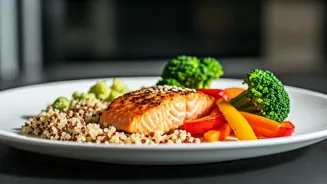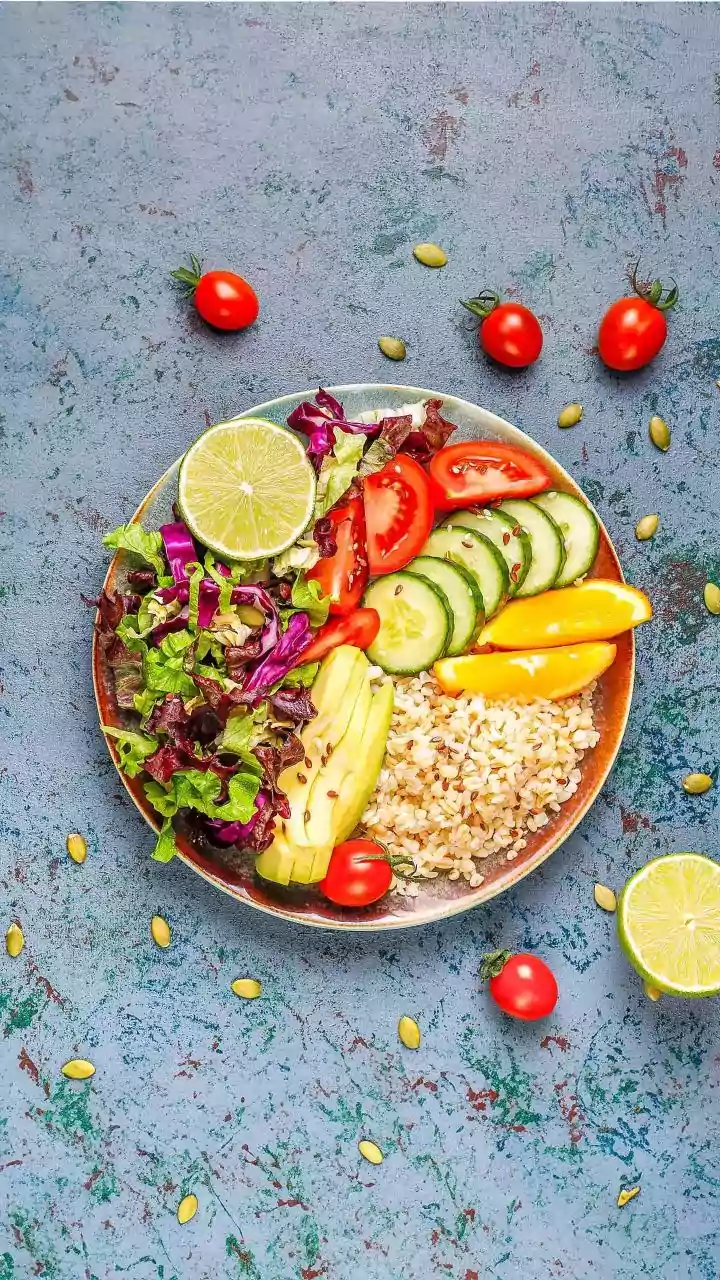Timing is Key
The timing of your dinner plays a pivotal role in your weight loss efforts. Experts often suggest that eating dinner earlier in the evening can yield substantial
benefits. A common recommendation is to finish your dinner at least two to three hours before bedtime. This timing allows your body adequate time to digest food before you sleep, potentially leading to improved sleep quality and reduced chances of metabolic disturbances. Furthermore, an earlier dinner can prevent late-night snacking, which is often a major hurdle for people trying to lose weight. By allowing a sufficient interval between your last meal and sleep, your body can focus on repairing and restoring itself rather than actively digesting food. This approach can positively impact your metabolism, as your body transitions into a more efficient fat-burning state overnight. Therefore, adjusting your dinner time can be a strategic step towards better weight management and overall well-being.
Lean Proteins Matter
Incorporating lean proteins into your dinner is crucial for weight loss. Foods like grilled chicken, fish, tofu, and legumes provide essential amino acids that help build and repair muscle tissues. Muscle mass plays a significant role in metabolism, increasing your body's ability to burn calories even when at rest. Moreover, lean proteins offer a sense of satiety, meaning they keep you feeling fuller for longer, which can help prevent overeating and reduce unnecessary calorie intake. When planning your dinner, consider protein-rich meals, such as a grilled salmon with steamed vegetables or a lentil soup. These options not only provide essential nutrients but also help you feel satisfied without adding excess calories. Making lean proteins a consistent part of your dinner routine can support your weight loss journey by optimizing your metabolic rate and controlling your appetite, contributing to a healthier and more balanced lifestyle.
Vegetables Galore
Vegetables should form a substantial part of your dinner plate if you aim for effective weight loss. Vegetables are typically low in calories but high in essential nutrients like vitamins, minerals, and fiber. This combination makes them ideal for filling you up without exceeding your daily calorie goals. Fiber, in particular, slows down digestion, promoting a feeling of fullness and helping to regulate blood sugar levels. Consider including a colorful assortment of vegetables in your dinner, such as leafy greens, broccoli, bell peppers, and zucchini. Steam, roast, or stir-fry them to retain their nutrients. Aim for at least half of your dinner plate to be vegetables. The high volume of vegetables can help to keep calorie intake low, offering vital nutrients and promoting healthy eating patterns. By prioritizing vegetables, you're supporting your weight loss efforts and also fueling your body with essential vitamins and minerals for optimal health.
Healthy Fats (Moderation)
Healthy fats, when consumed in moderation, can be beneficial for weight loss and overall health, especially when incorporated into dinner. While fats are calorie-dense, they play a crucial role in many bodily functions, including hormone production and nutrient absorption. Incorporating sources of healthy fats, such as avocados, olive oil, and nuts, can help you feel satisfied and support your body's absorption of fat-soluble vitamins. However, it's essential to consume these fats in moderation, as they contribute significantly to your daily calorie intake. Use a small amount of olive oil when cooking vegetables, add a few slices of avocado to your salad, or add a handful of nuts to your evening meal. While including healthy fats is good, portion control is key. Too much fat, regardless of how healthy it is, can stall weight loss efforts. By balancing your intake of healthy fats with lean proteins and lots of vegetables, you can create a balanced dinner that supports your weight loss journey.
Whole Grains Option
Incorporating whole grains in moderation can contribute to a well-rounded and weight-loss-friendly dinner. Whole grains like brown rice, quinoa, and oats provide fiber, which aids in digestion and keeps you feeling full for longer. This is important for curbing overeating and managing hunger. Unlike refined grains (white rice, white bread), whole grains retain their bran and germ, providing a host of vitamins, minerals, and antioxidants. However, it's important to manage portion sizes. Whole grains, while beneficial, contain calories. A small serving of whole grains as part of your dinner can provide the necessary fiber and nutrients without significantly increasing your calorie intake. Consider having a side of brown rice with your chicken and vegetables, or a small portion of quinoa in your salad. This strategic addition supports the body's metabolism. Remember, the key is balance; combine whole grains with lean proteins, vegetables, and healthy fats to make a dinner that supports your weight loss goals.
Limit Processed Foods
To achieve effective weight loss, limiting processed foods in your dinner is a crucial step. Processed foods are often high in calories, unhealthy fats, added sugars, and sodium while being low in essential nutrients. These foods can sabotage your weight loss efforts in several ways. Their high calorie content leads to excessive energy intake, while added sugars and unhealthy fats can lead to increased fat storage and inflammation. Processed foods are also engineered to be highly palatable, making it easy to overeat and consume excess calories. Common examples of processed foods include ready-to-eat meals, sugary snacks, and fast food. Preparing your dinner from scratch using whole, unprocessed ingredients is generally more beneficial. This allows you to control what you are eating and make sure that you are consuming a nutrient-rich meal. When planning your dinner, make a conscious effort to avoid these foods. Make sure to select fresh, whole foods. This allows you to make more informed decisions that are supportive of weight loss and overall health.





















